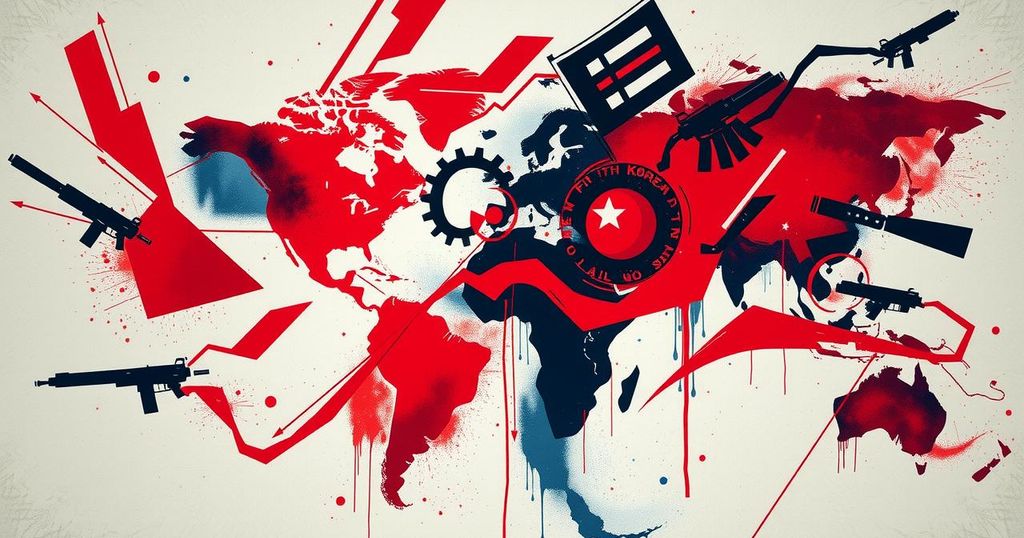Survival Strategy: How Global Conflicts Harden North Korea’s Nuclear Resolve
North Korea’s nuclear resolve is strengthened by global conflicts, notably the situations in Ukraine and Iran. The regime views the lessons from countries like Libya and Iraq as justification for maintaining its nuclear arsenal. Experts stress the need for diplomatic engagement, while Pyongyang’s focus remains on survival.
Amid escalating global conflicts, including the ongoing situations in Ukraine and Iran, North Korea seems more committed than ever to solidifying its nuclear arsenal. Analysts highlight that the country’s stance is increasingly influenced by the unstable geopolitical climate, contributing to what they describe as an ‘irreversible’ commitment to its nuclear program. While experts differ on the precise implications, one thing is certain: North Korea’s leadership perceives this time of turmoil as a clear reinforcement of their need for survival.
The lessons from Libya’s Muammar Gaddafi and Iraq’s Saddam Hussein weigh heavily on Pyongyang’s calculations. According to Koh Yu-hwan, a North Korean studies professor at Dongguk University, these historical examples serve as cautionary tales that only reinforce North Korea’s nuclear resolve. “It has learned a lesson; if you want to hold on to power, you never give up your nuclear weapons,” he warned.
For observers, the challenge remains: if diplomatic engagement is to be even remotely possible, they argue that the United States and its allies must keep avenues for negotiation open. However, analysts caution that the current narrative in North Korea is dominated by a singular focus on survival and deterrence. This has significantly raised the stakes for international diplomacy.
As North Korea continues to reflect on the fates of other nations, the continuing conflicts abroad appear to serve as both a justification and a motivation for their nuclear ambitions. The message from Pyongyang is clear: in a world fraught with uncertainties and conflicts, they view nuclear weapons as paramount to maintaining their grip on power.
In conclusion, North Korea’s steadfast nuclear ambition is increasingly shaped by global events. The lessons drawn from conflicts in Ukraine and the Middle East further reinforce their conviction to never relinquish their weapons. Observers agree, if denuclearization talks are to have any hope of resuming, the door to negotiations must remain open, albeit with significant challenges on the horizon.
In summary, North Korea’s nuclear strategy is heavily influenced by current global conflicts, particularly lessons from the fates of Libya and Iraq. Analysts stress the importance of keeping diplomatic channels open to potentially engage Pyongyang in denuclearization discussions. However, the regime’s deep-seated belief in the necessity of nuclear weapons for survival complicates any hopes for resolution.
Original Source: www.scmp.com




Post Comment